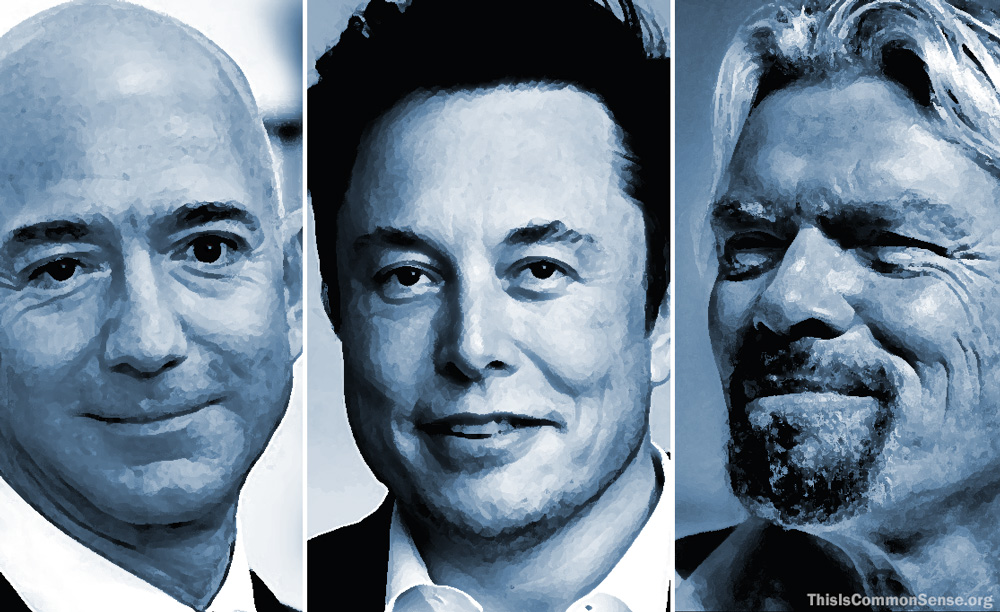On Sunday, billionaire Richard Branson became the first person to ascend into space in his own spacecraft — assuming that myth, old rumors and sci-fi stories of god-kings and mad scientists going to the Moon or Mars remain just that, myth and rumor and fi.
“The launch with Branson marked the 22nd test flight of Virgin Galactic’s VSS Unity space plane,” writes Alex Veiga for MSN. “The company has planned at least two more space test flights this year.”
Thus Branson beat Jeff Bezos into space — depending how you figure. Later in the month Bezos’s Blue Origin spacecraft is set to launch Amazon’s less-than-beloved billionaire even higher above the planet.*
The billionaire space race is on, with the next level to be reached when regularly scheduled flights become the norm, ticket sales and all.
This is really “just” thrill-ride fare we are talking about here — and likely when commercial space travel first becomes normalized. Neither man is aiming to rocket into orbital space.
Yet.
Which is not to say this is not of great significance.
Of course, the fledgling industry receives criticism. Why go to space now, some say, when we have so many problems on Earth?
Well, explorers and adventurers did not wait till Europe’s problems were solved to explore and settle the Americas. They pushed forward.
Just as there is a division of labor in society, there is a division of ambition, of venture.
I will likely never go into space. But I am happy Richard Branson got there.
And I’ll applaud if you, too, jaunt upwards.
This is Common Sense. I’m Paul Jacob.
* Branson and Bezos publicly squabble about what “space” is. Virgin Galactic went above the American standard of about 50 miles, while Bezos aims for the worldwide “accepted” standard of 62 miles.
Jeff Bezos| Elon Musk | Richard Branson
See all recent commentary
(simplified and organized)
See recent popular posts


